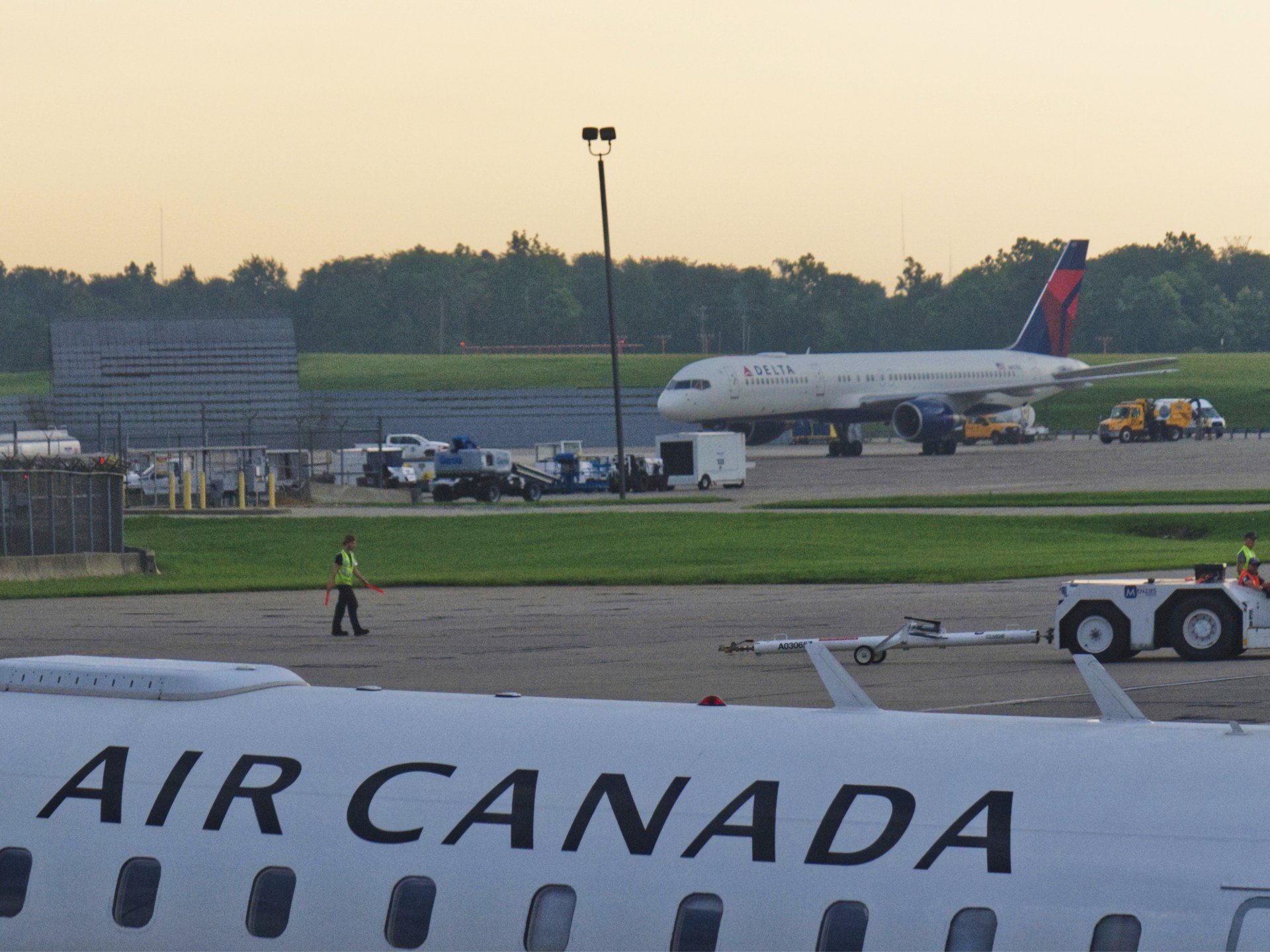The Canada Industrial Relations Board (CIRB) has declared that the strike, which has resulted in the dismissal of 10,000 members of the cabin crew, is unlawful because the strikers ignored the workers’ orders to go back to work.
Following a previous directive that employees must return to work on Sunday at 2 p.m. ET (18:00 GMT), the regulatory board made the call on Monday.
The airline’s cabin crew argued for a negotiated resolution, claiming that binding arbitration would relieve the airline of its pressure. According to workers, the proposed wage increases are insufficient to match the federal minimum wage and keep up with inflation.
The attendants are also asking for compensation for tasks like boarding passengers while working on the ground. They are no longer paid when aircraft are moving, which has sparked some vocal Canadian support on social media.
The cabin crews should be “compensated equitably at all times,” according to Prime Minister Mark Carney.
Carney pressed for a resolution, noting that “practically hundreds of thousands of Canadians and visitors to our countries are being hampered by this action.”
The airline, which is a member of the global Star Alliance network, typically transports 130, 000 passengers per day during the airline’s current peak summer travel season.
Due to the fact that Air Canada’s aircraft were still grounded on Monday, the company suspended its third-quarter and annual profit projections.
The union vowed to keep on the strike and to “negotiate a fair deal” with Air Canada.
A nudge from the government
The government has two options right now: requesting an expedited hearing and requesting the court to impose the return order.
The minority government might also attempt to pass legislation that would require the consent of political rivals and approval of both the Canadian Parliament’s breaks until September 15.
According to Dionne Pohler, professor of dispute resolution at Cornell University’s Industrial and Labor Relations School, “the government will be very reticent to be too heavy-handed because the Supreme Court has ruled that governments must be very cautious when removing the right to strike, even for public sector workers who may be deemed essential.”
According to Pohler, encouraging bargaining might be a second option.
Requests for comment were not responded to by the government.
The CIRB ordered a binding arbitration order on Saturday, and Carney’s liberal government responded by putting an end to the strike. The order was requested by Air Canada, but unionized flight attendants objected to it, and the CIRB, an independent administrative tribunal that interprets and applies Canada’s labor laws, did so.
It is unusual for a union to defy a CIRB order, but the previous government, led by former prime minister Justin Trudeau, intervened last year to stop rail and dock strikes that threatened to cripple the economy.
Over the weekend, travelers at Toronto Pearson International Airport expressed confusion and frustration over the availability of their flights.
Francesca Tondini, an Italian who lives nearby and is a 50-year-old man, said she was in favor of the union despite not knowing when she would be able to return home.
She grinned and pointed to the striking attendants, “They are right.”
How airlines compensate flight attendants is a factor in the conflict between the cabin crew and Air Canada. The majority of them, including Air Canada, only pay them when aircraft are moving.
Flight attendants in both Canada and the United States have asked for pay for hours worked, including for tasks like boarding passengers, in recent contract negotiations.
The clock must be set for paying flight attendants when passengers board according to new labor agreements between American Airlines and Alaska Airlines.
American flight attendants now receive pay for the extra hours that pass between flights. The cabin crews on United Airlines, who rejected a tentative contract agreement last month, also want a similar clause.
As of 12 p.m. (GMT) at 12 p.m. on the market, Air Canada’s stock had fallen 1.6%. Another Star Alliance member, United Airlines, which serves several important Canadian cities and does not have a striking cabin crew, is up 1.4 percent.
Source: Aljazeera

Leave a Reply